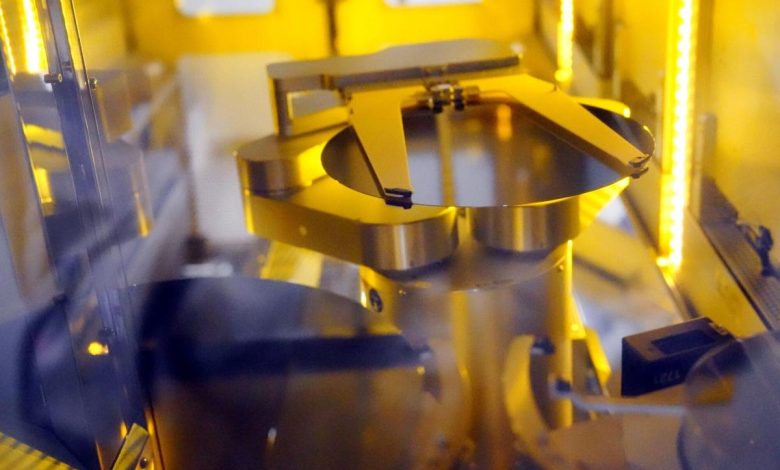Samsung, Texas Instruments Finalize Chips Act Awards Deals

(Bloomberg) — Samsung Electronics Co. and Texas Instruments Inc. completed final agreements to get billions of dollars of government support for new semiconductor plants in the US, cementing a major piece of the Biden administration’s Chips Act initiative.
Most Read from Bloomberg
Under binding agreements unveiled Friday, Samsung will get as much as $4.75 billion in funding and Texas Instruments stands to receive $1.6 billion — money that will help them build facilities in Texas and Utah. The final deals mean the chipmakers can begin collecting the funding when their projects hit certain benchmarks.
Though the terms of Texas Instruments’ final agreement is in line with a preliminary deal, Samsung is getting substantially less than originally expected.
“Our mid-to-long-term investment plan has been partially revised to optimize overall investment efficiency,” Samsung said in a statement, indicating that its project won’t be as large as originally planned. “Incentives have been allocated through rigorous negotiations with the US government. We are not able to disclose details of the agreement at this time.”
The Chips Act, signed into law by President Joe Biden in 2022, set aside $39 billion in grants, loans and loan guarantees worth $75 billion, and 25% tax credits. It aims to boost American semiconductor production after decades of manufacturing shifting abroad. Officials have divvied up most of that money, with Commerce Secretary Gina Raimondo racing to finalize as many deals as possible before leaving office.
The latest awards round out the program’s biggest grants, helping ensure that there’s comprehensive local production of semiconductors. Texas Instruments is the largest maker of analog chips and embedded processors. Samsung is the world’s top maker of memory chips and a major provider of advanced outsourced production for other companies.
TI and its peers focus on what Washington calls legacy chips, which don’t require the most advanced production but are increasingly important to the economy and defense. They’re used in everything from military equipment to household electronics.
Today’s vehicles, for example, require a host of sensors, power converters, power management and motor-control chips to bridge the gap between the digital and real world.
Source link






